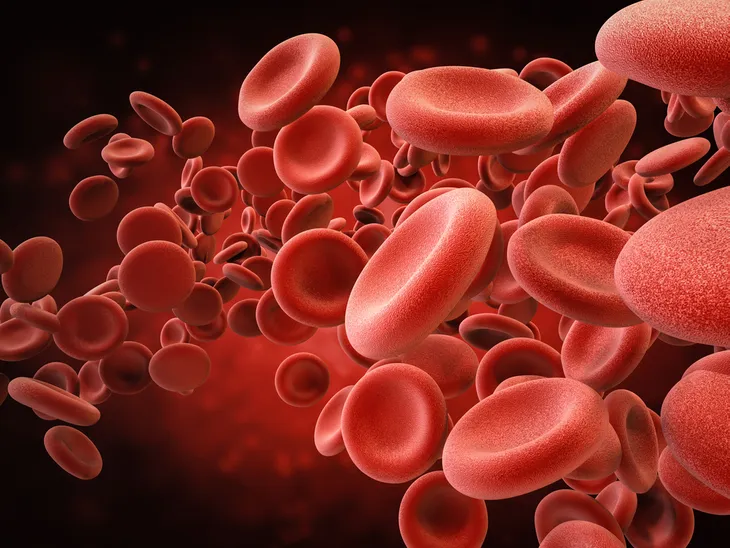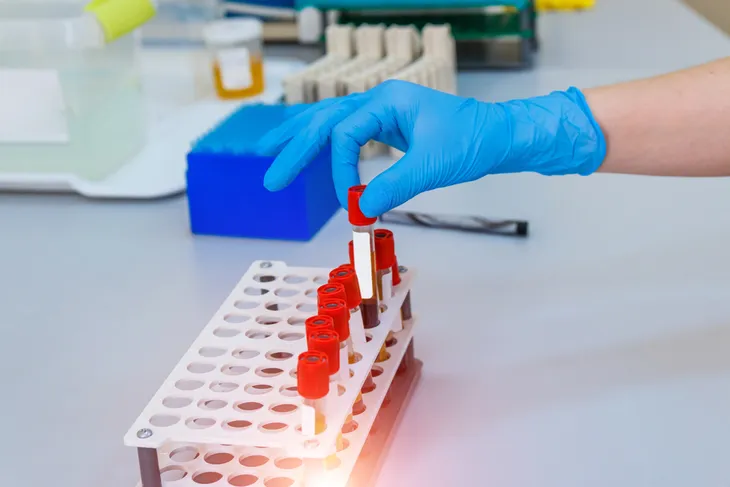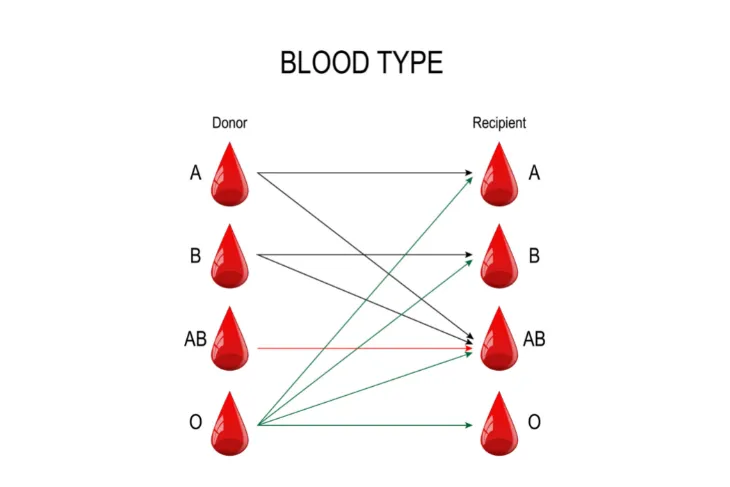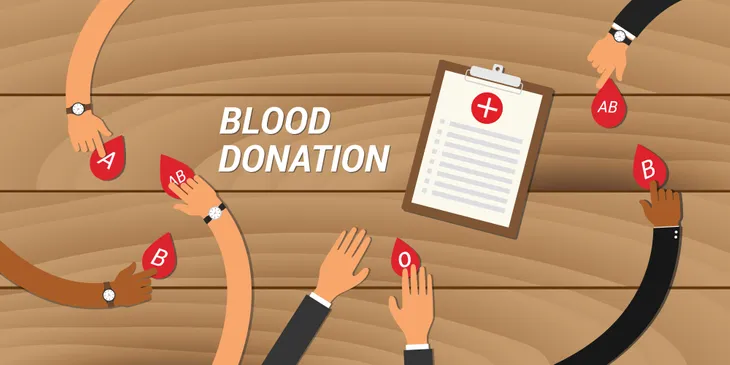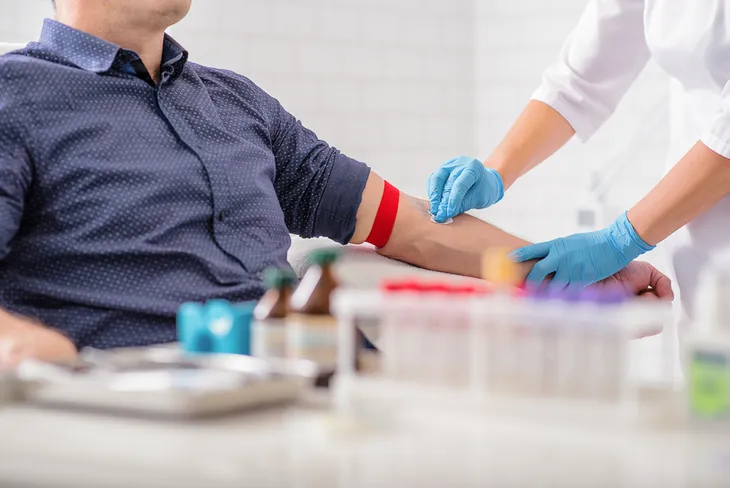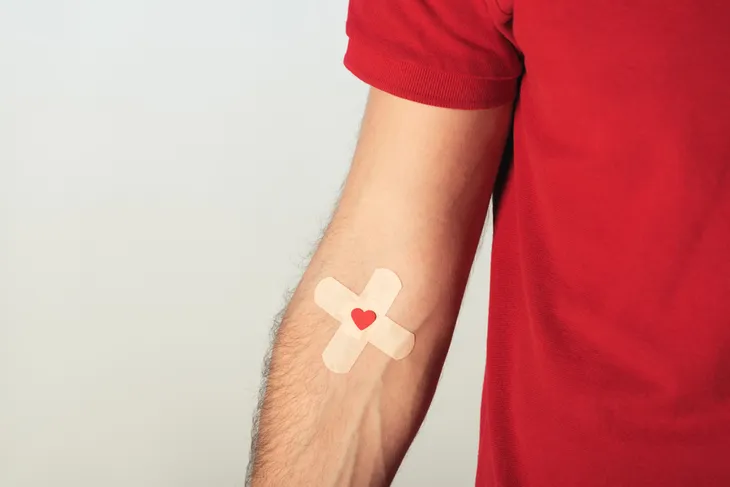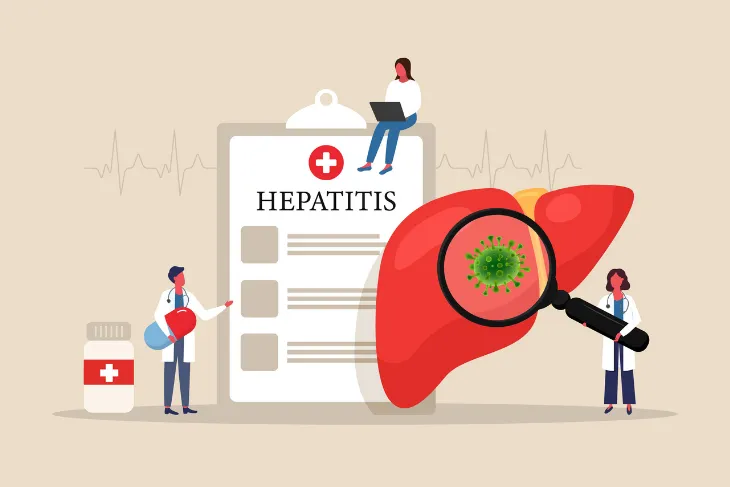About 10-percent of the adult human body is made up of blood. Although blood looks the same in every person, there are huge differences in what blood consists of from person to person. Scientists and doctors are able to categorize blood types based on several factors.
It turns out that some blood types are a lot more common than others, which is good to know in case you ever require a blood transfusion or are interested in donating blood. Here’s a breakdown of the different blood types, including information on which is the rarest blood type in the world!
What Is a Blood Type?
There’s a reason why everyone has a different blood type. Blood is essentially made up of red blood cells, white blood cells, plasma, and platelets. Medical News Today says that blood groups depend on which antigens, also known as molecules, are on the surface of the red blood cells. Antigens vary from person to person depending on their genetics.
Every person has a certain blood type. It’s important to know your blood type in case you ever need to receive blood from another person for medical reasons. Blood types also determine who you can donate blood to.
The Different Blood Types
The American Red Cross Blood Services explains how your blood type belongs to one of four groups. These groups determine whether there is a presence or absence of A and B antigens on the surface of red blood cells. These groups are further broken down by the Rh factor. Blood will be labeled as positive or negative depending on whether this protein is present in the blood.
Based on the antigens and the Rh factor, there are eight different blood types:
- A-positive
- A-negative
- B-positive
- B-negative
- AB-positive
- AB-negative
- O-positive
- O-negative
Ab-Negative Is the Rarest Blood Type
While the prevalence of blood type can vary depending on where you are in the world, Healthline says that AB-negative is considered the rarest blood type in the U.S. It accounts for only 0.6-percent of blood types in the country.
People with AB-negative blood are able to receive red blood cells from donors with any other Rh-negative blood type. They are also universal platelet and plasma donors since this blood can be transfused to any patient.
What Is the Most Popular Blood Type?
The Stanford School of Medicine Blood Center has data showing the prevalence of other blood types in the U.S. The most popular type is O-positive. Around one in three people have this blood type for a frequency of 37.4-percent.
Coming in at a close second is A-positive. Around one in three people also have this blood type and it has a frequency of 35.7-percent. In comparison, the remaining five blood types have relatively low percentages. Here’s how common they are:
- B-negative (1.5-percent)
- AB-positive (3.4-percent)
- A-negative (6.3-percent)
- O-negative (6.6-percent)
- B-positive (8.5-percent)
Is Blood Interchangeable?
People requiring a blood transfusion need to have blood that’s compatible with their own. This doesn’t necessarily mean you need to have the exact same blood type. For instance, Memorial Blood Centers says that donors with type O blood are universal red cell donors. This means they can donate to a person with any blood type.
There are some other exceptions when it comes to donors. Those with AB negative and AB positive blood are universal plasma donors. Further, patients with AB+ blood are universal red cell recipients which means they can receive red cells from all types.
Donating Blood
Donating blood might seem a bit intimidating or nerve-wracking if you’ve never done it before. But considering that 6.8 million people in the U.S. donate blood each year, it’s nothing to be afraid of.
The Red Cross says it only takes about 8 to 10-minutes to donate a pint of blood. You’ll be able to leave the donation center after 10 to 15-minutes once you’ve let your body adjust to the change in fluid volume.
How Often Can You Donate Blood?
If you’re interested in donating, you may be wondering how often you can donate? Those able to donate blood must wait at least 8-weeks or 56-days until they can donate again.
To be an eligible donor, you must be at least 17-years of age in most states and weigh at least 110-pounds. You should also be in good health to ensure it’s safe for you to donate.
The Importance of Blood Donations
Try becoming a regular blood donor, especially if you have a rarer blood type. The Red Cross reports that only 3-percent of age-eligible people donate each year. Your donation will help meet patient needs and ensure there is enough supply for hospitals to have available.
Taking this time out of your day can make a big difference — a one-time donation may be able to help up to three people. Not to mention, your donation could save a life!
Reasons You Cannot Donate Blood
Unfortunately, not everyone is eligible to donate blood. The U.S. Food and Drug Administration has strict requirements in order to protect the health of patients and potential donors. Your eligibility to be a blood donor is denied when you’re taking certain medications. Some of the medications that make you ineligible to donate blood include:
- Antibiotics for a current infection.
- Cellcept taken currently or in the last 6-weeks.
- Avodart or Jalyn taken currently or in the last 6-months.
- HIV Prevention medications currently or in the last 3-months.
- HIV treatment.
Talk to your doctor to find out if your current or past medications affect your eligibility to be a blood donor.
Other Reasons You Cannot Donate
Medication isn’t the only thing that can stop you from donating blood. Other reasons related to your medical, travel, or residence history can also impact your eligibility. Some of these reasons include whether you:
- Ever tested positive for HIV/AIDS.
- Have hepatitis or been in close contact the past year with someone who does.
- Traveled to an area where malaria is common in the past 3-months.
You can learn more about being an eligible donor by searching online or contacting a blood donation center.
Do You Know Your Blood Type?
Do you know your blood type? If not, you’re not alone. CNN reports that only 66-percent of Americans actually know what their blood type is. Luckily the process isn’t too difficult.
For starters, ask your parents in case they have old health records on file. The next best person to contact would be your doctor who will also have that information readily available for you.
Other Ways to Find Out Your Blood Type
Alternatively, you can find out your blood type the next time your blood is drawn. Ask the lab what type you have when the results are done.
Another way to find out is by donating blood through the Red Cross. After donating, you’ll be given a donor card which gives you access to your blood type once it’s tested. After a few days, you will get the result.

